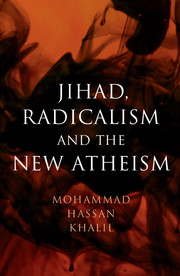1 - War and Peace in the Foundational Texts of Islam
from Part I - Jihad
Published online by Cambridge University Press: 12 December 2017
Summary
Muslims generally take the Qur'an (Koran) to be the “word of God,” a scripture that was revealed piecemeal to the Prophet Muhammad (570–632) over the last twenty-three years of his life. It contains passages that promote restraint and reconciliation and others that call for war. This parallels what we find in the popular biographies of Muhammad: When he began his prophetic mission in the city of Mecca as a monotheistic preacher to mostly polytheistic tribespeople, he adopted a pacifistic approach – and adhered to it despite the persecution and even murder of some of his followers. It was only after he emigrated in 622 to the city of Medina (then called Yathrib), established a community of believers, and assumed direct responsibility for the well-being of his followers that he took up arms.
THE CONTEXT
By all accounts, seventh-century Arabia was a world in which tribes regularly clashed. “In this society,” historian Fred Donner writes, “war (harb, used in the senses of both an activity and a condition) was in one sense a normal way of life.” Indeed, “a ‘state of war’ was assumed to exist between one's tribe and all others, unless a particular treaty or agreement had been reached with another tribe establishing amicable relations.” In the absence of such treaties or agreements, the clans of Mecca and the surrounding region could only find reprieve from war in the Ka‘ba sanctuary (throughout the year) and everywhere else during four “forbidden months” – the first, seventh, eleventh, and twelfth months of the Arabian lunar calendar. These forbidden months, recognized throughout Arabia, facilitated an annual pilgrimage to Mecca in the twelfth month and a “lesser pilgrimage” in the seventh, not to mention commercial trade. Beyond these restrictions, however, the pre-Islamic Meccans seem to have condoned and often engaged in tribal warfare and caravan raids.
The Qur'an attests to this reality:
Can [the unbelievers] not see that [God has] made [them] a secure sanctuary [in Mecca] though all around them people are snatched away?
(29:67)- Type
- Chapter
- Information
- Jihad, Radicalism, and the New Atheism , pp. 7 - 17Publisher: Cambridge University PressPrint publication year: 2017



